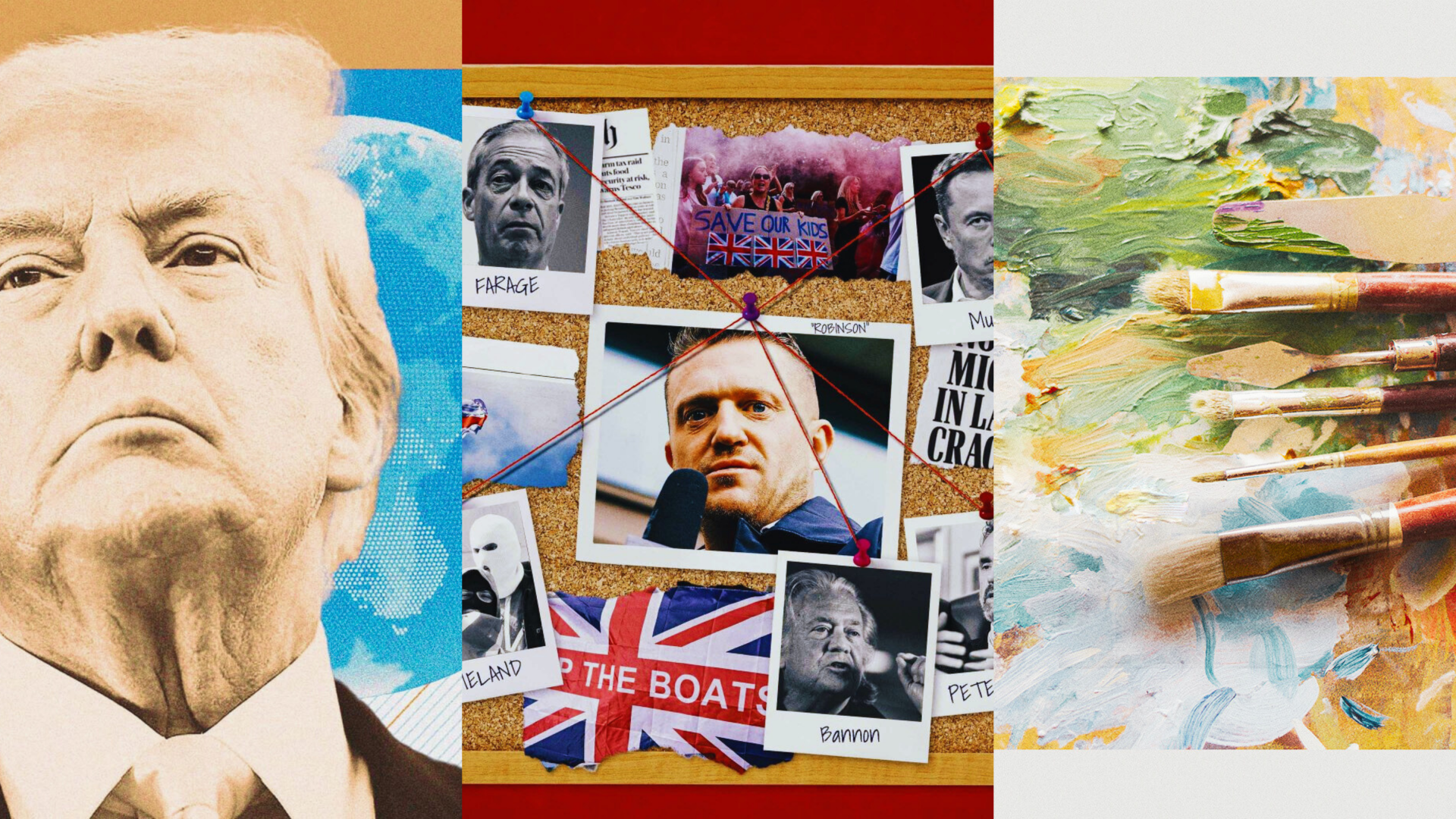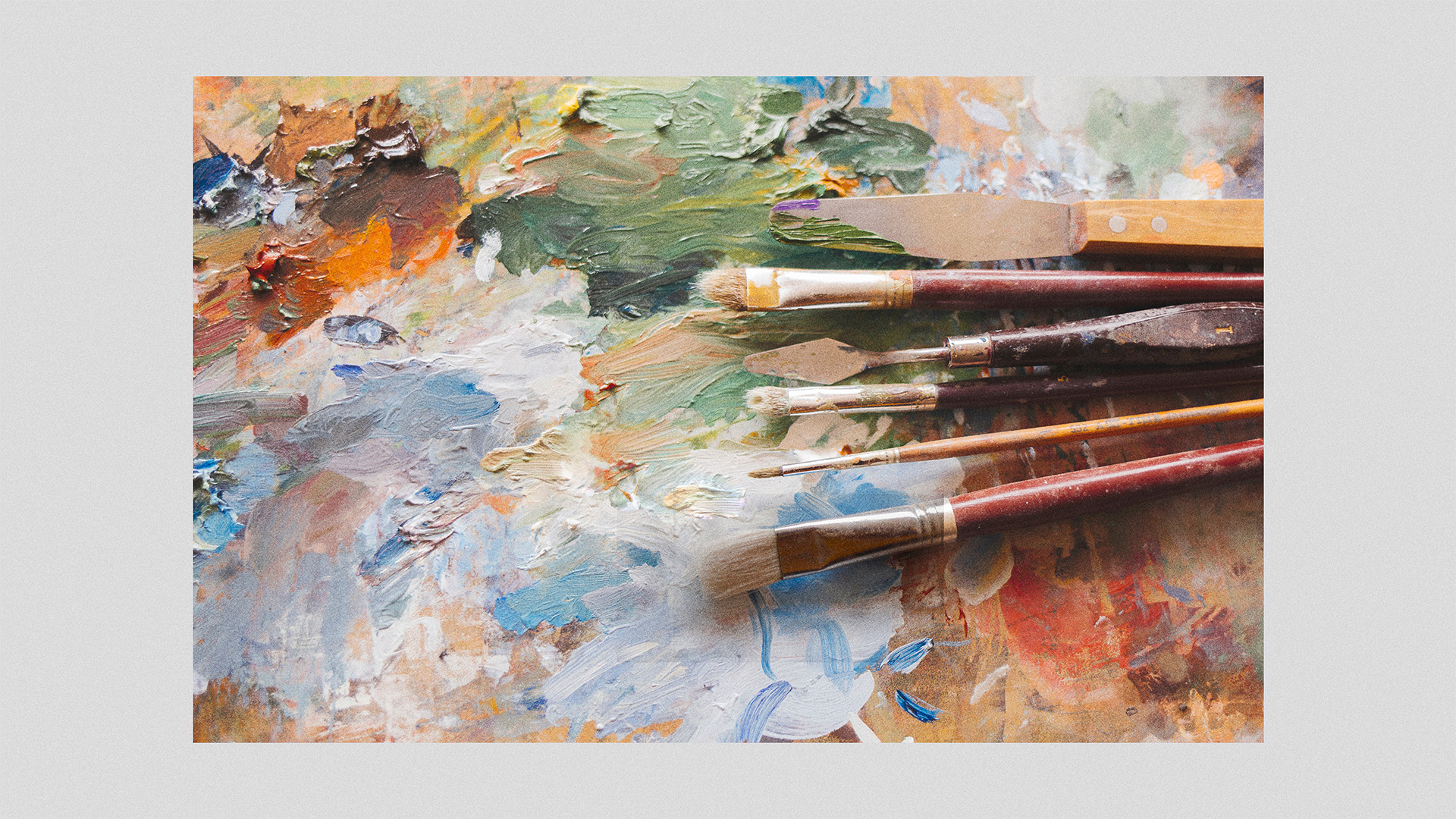Easy enough to dismiss Tommy Robinson as a thug on the margins of the extraordinary social upheaval Britain is undergoing. That would be an error.
As Matthew d’Ancona explains in this week’s cover story, Robinson plays a crucial role in the assault on progressive values led by Nigel Farage’s Reform Party, as do – at the far end of the spectrum – actual neo-Nazis in our midst, such as the ominous Homeland group, Britain’s largest fascist organisation.
Dismissing Robinson and Homeland as fringe players is to fail to understand how this corrosive and hateful nationalistic movement works. It is also a failure to appreciate how bleak the future could be under a Farage government sympathetic to the grievances of the far right.
As Matthew writes:
“Too many progressives draw comfort from the fact that Farage and Robinson loathe each other. It is true that they do […] but this feud is much less important than the operations of the movement as a whole. […] Camaraderie is much less important than division of labour. This is because – broadly speaking – Farage, Robinson and organisations like Homeland have coalesced around a hard core of issues: grooming gangs, asylum hotels, state control, net zero, and the bleak sense so many parents have that their children’s lives will be worse than their own.”
Understanding the dynamics of this threat to our democracy and what so many of us took for granted (for too long) as British values of decency, tolerance and an arc away from bigotry and prejudice, is central to The New World’s mission. I hope Matthew’s forensic analysis gives you a better understanding of what is at stake in the remaining years of Keir Starmer’s first term of office.
Elsewhere, Lynne O’Donnell sheds light on the fascinating story of Taliban overlord and drug tycoon Bashir Noorzai – who was captured and jailed for life by the US, but who is now at large and establishing himself as gatekeeper to Afghanistan’s trillion-dollar rare earth deposits. It’s an extraordinary tale linking the US, China, Pakistan and Iran with the murky and secretive international quest for the obscure minerals on which our 21st-century lives depend.
Editor-at-large and weekly diarist Alastair Campbell writes from Singapore this week, where he has been giving a speech. Part of his brief was to predict the next ten years. He considers how the last ten years have gone and demurs. “If the next decade is as nuts as the last one, we’re screwed,” he writes. Fair enough.
As a teenager – the moody, truculent, agonised kind (what a joy I must have been to my poor parents) – I was obsessed with James Dean. It’s weird to think that when I was watching over and over and over his canon of three great films – Rebel Without a Cause, East of Eden and the posthumously released Giant – he’d been dead just thirty years. At the end of this month, that milestone is 70 years. Tempus fugit like never before.
The brilliant writer Gail Crowther and one of pop culture’s greatest photographers Kevin Cummins make a pilgrimage to that dusty highway on Route 466 where Dean stuffed his Porsche 550 Spyder into the side of an oncoming Ford, breaking his neck in the process.
If you are of a certain age and fancy a large dose of melancholy wrapped in some of the best prose and images your retina will encounter this week, then look no further.
Lastly, and only lastly because she is literally the last thing we publish in our weekly magazine, Marie Le Conte discusses her passion for oil painting, and how it has challenged her long-standing hatred of being stuck indoors. Marie explains how she is closing the gap between what she envisages in her art and what actually ends up in front of her on the canvas. The more she practises, the more the gap closes. It’s a lesson for life and one I feel acutely with The New World each week. No, it’s never perfect – but the more we try, the closer it gets to being what we set out to achieve; an original and unique magazine that entertains, explains, holds power to account and is home to ideas for a better future. I hope you enjoy this week’s attempt.



